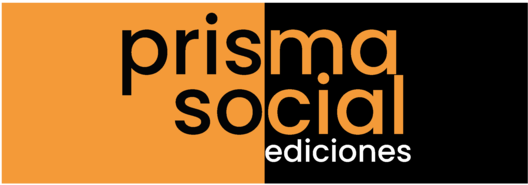Representation of didactic games in social studies at the primary school level
Keywords:
primary school, games, teaching, social studiesAbstract
This empirical research sought to establish the representation of didactic games in social studies in the fourth and fifth grades in primary school. The authors examined the frequency with which didactic games are used in social studies, the frequency with which didactic games are used with regard to the different phases of a class session, the most important reason teachers use didactic games in social studies; and students’ opinions on whether it is possible to gain new knowledge via didactic games. The research sample consisted of 290 fourth and fifth grade students, 177 teachers teaching the fourth and fifthgrades, and 56 observed social studies lessons. The results show that teachers rarely use didactic games in social studies. Teachers most commonly use didactic games at the beginning of lessons—in the introduction. Most often, teachers use didactic games to achieve greater motivation and concentration of students and for more diversified and relaxed classes. Also, students believe that by using didactic games in social studies they gain knowledge.
Downloads
References
Blažič, M., Ivanuš Grmek, M., Kramar, M., & Strmčnik, F. (2003). Didaktika [Didactics]. Novo Mesto: Visokošolsko središče, Inštitut za raziskovalno in razvojno delo.
Bodrova, E., & Leong, D. (2007). Play and early literacy: A Vygotskian approach. In K. A. Roskos & J. F. Christie (Eds.), Play and literacy in early childhood: Research from multiple perspectives (2nd ed.). Mahwah, NJ: Lawrence Erlbaum Associates.
Bognar, L. (1987). Igra pri pouku na začetku šolanja [Game at the beginning of school education]. Ljubljana: DZS.
Boocock, S. S. (1971. An introduction to the sociology of learning. New York, NY: Houghton Mifflin.
Budnar, M., Kerin, M., Umek, M., Raztresen, M., & Mirt, G. (2011). Učni načrt: Program osnovna šola. Ljubljana: Ministrstvo za šolstvo in šport, Zavod RS za šolstvo.
Cenčič, M, Cotič, M., & Medved Udovič, V. (2008). Pouk v družbi znanja. In V. Medved Udovič, M. Cotič, & M. Cenčič (Eds.), Sodobne strategije učenja in poučevanja [Modern didactic teaching and learning strategies] (pp. 283–308). Koper: Pedagoška fakulteta.
Colburn, A. (2000). Constructivism: Science education's “grand unifying theory”. The Clearing House: A Journal of Educational Strategies, Issues and Ideas, 74(1), 9.
Cramer, D., & Howitt, D. L. (2004). The SAGE dictionary of statistics: A practical resource for students in social sciences. London: SAGE.
Field, A. (2013). Discovering statistics using IBM SPSS statistics (4th ed.). London: SAGE.
Ginsburg, K. R. (2007). The importance of play in promoting healthy child development and maintaining strong parent-child bonds. Pediatrics, 119(1), 182-191.
Ivanuš Grmek, M., & Hus, V. (2006). Odprti pouk pri predmetu spoznavanje okolja [Open Classes in Environmental Education]. Sodobna pedagogika [Journal of Contemporary Educational Studies], 57(2), 68-83.
Juriševič, M. (2012). Motiviranje učencev v šoli [Students’ motivation at school]. Ljubljana: Pedagoška fakulteta.
Marentič-Požarnik, B. (2003). Psihologija učenja in pouka [Psychology of learning in teaching]. Ljubljana: DZS.
Marjanovič Umek, L. & Zupančič, M. (2001). Teorija otroške igre. In L. Marjanovič Umek & M. Zupančič (Eds.), Psihologija otroške igre: Od rojstva do vstopa v šolo [Psychology of children’s play] (pp. 1–33). Ljubljana: Znanstveni Inštitut Filozofske fakultete.
Maxim, G. (2010). Dynamic social studies for constructivist classrooms. Boston, MA: Pearson Education.
Miller, E., & Almon, J. (2009). Crisis in the kindergarten: Why children need to play in school. College Park, MD: Alliance for Childhood.
Mishra, R. K. (2015). Teaching–Learning in a constructivist social science classroom. Journal of Educational Sciences and Psychology, 67(2), 15–22.
Petsche, J. (2011). Engage and excite students with educational games. Knowledge Quest, 40(1), 42–44.
Roskos, K. A., & Christie, J. F. (Eds.). (2000). Play and literacy in early childhood: Research from multiple perspectives. Mahwah, NJ: Lawrence Erlbaum Associates.
Rules on the promotion of employees in education in titles. Official Gazette of RS, No. 54/02, 123/08, 44/09, and 18/10. Retrieved on March 10th from: http://www.pisrs.si/Pis.web/pregledPredpisa?id=PRAV4272#
Sawyer, K. R. (2001). Play as improvisational rehearsal: Multiple levels of analysis in children's play. In A. Göncü & E. Klein (Eds.), Children in play, story, and school (pp. 19-38). New York, NY: Guilford.
Smilansky, S. (1968). The effects of sociodramatic play on disadvantaged preschool children. New York, NY: John Wiley & Sons.
Tankersley, D., Brajković, S., Handžar, S., Rimkiene, R., Sabaliauskiene, R., Trikiž, Z., Vonta, T. (2013). Od teorije k praksi. In Režek, M. (Ed.), Putting knowledge into practice: A guidebook for Educators of ISSA’a Principles of Quality Pedagogy. Ljubljana: Pedagoški Inštitut.
Tomić, A. (1997). Izbrana poglavja iz didaktike [Selected topics from didactics]. Ljubljana: Center za pedadoško izobraževanje Filozofske fakultete.
Woolfolk, A. (2002). Pedagoška psihologija [Pedagogical psychology]. Ljubljana: Educy.
Wurdinger, S. D., & Carlson, J. A. (2009). Teaching for experiential learning: Five approaches that work. Lanham, MD: R&L Education.
Downloads
Published
How to Cite
Issue
Section
License
Those authors who publish in this journal accept the following terms:
-
Authors retain copyright.
-
Authors transfer to the journal the right of first publication. The journal also owns the publishing rights.
-
All published contents are governed by an Attribution-NoDerivatives 4.0 International License.
Access the informative version and legal text of the license. By virtue of this, third parties are allowed to use what is published as long as they mention the authorship of the work and the first publication in this journal. If you transform the material, you may not distribute the modified work. -
Authors may make other independent and additional contractual arrangements for non-exclusive distribution of the version of the article published in this journal (e.g., inclusion in an institutional repository or publication in a book) as long as they clearly indicate that the work was first published in this journal.
- Authors are allowed and recommended to publish their work on the Internet (for example on institutional and personal websites), following the publication of, and referencing the journal, as this could lead to constructive exchanges and a more extensive and quick circulation of published works (see The Effect of Open Access).


















